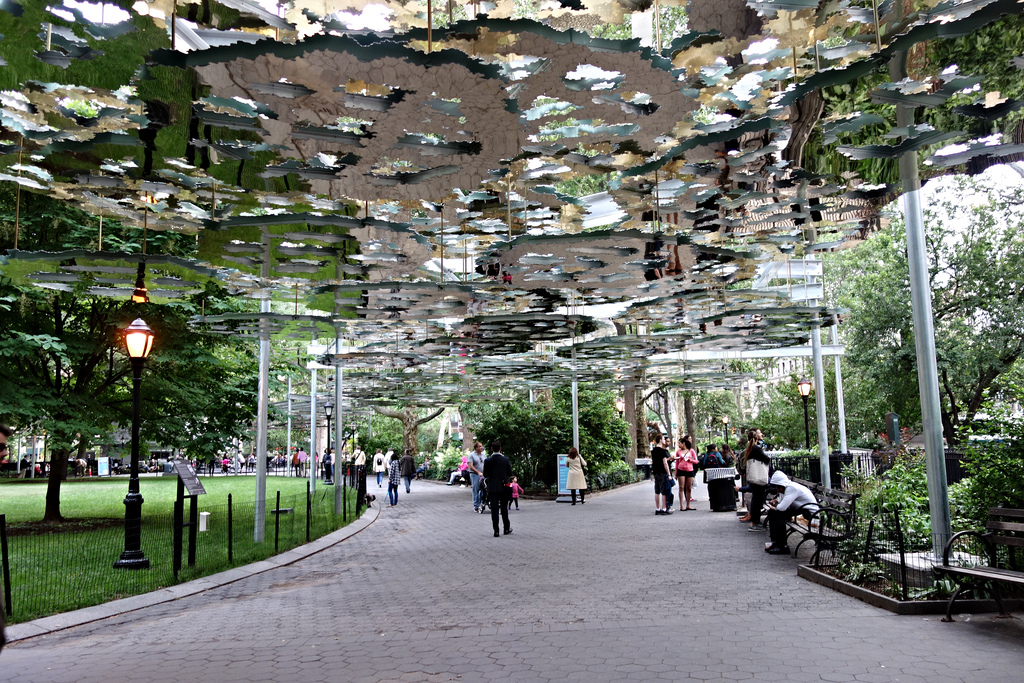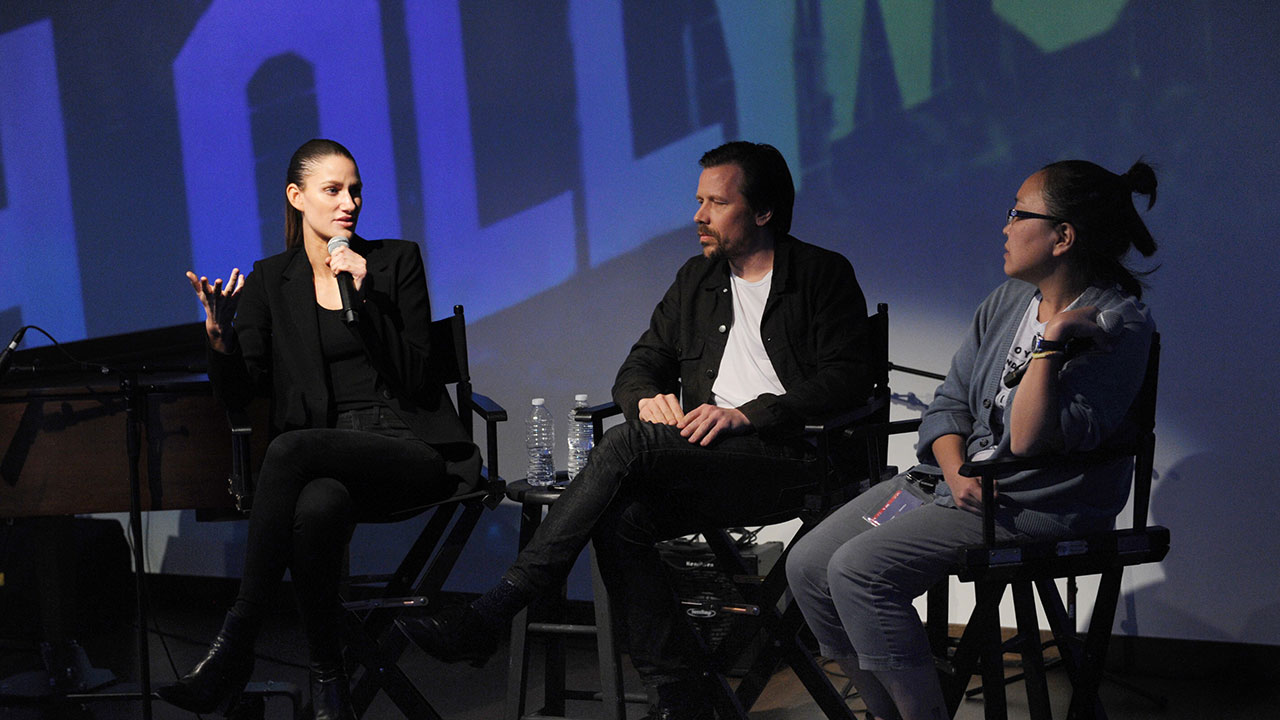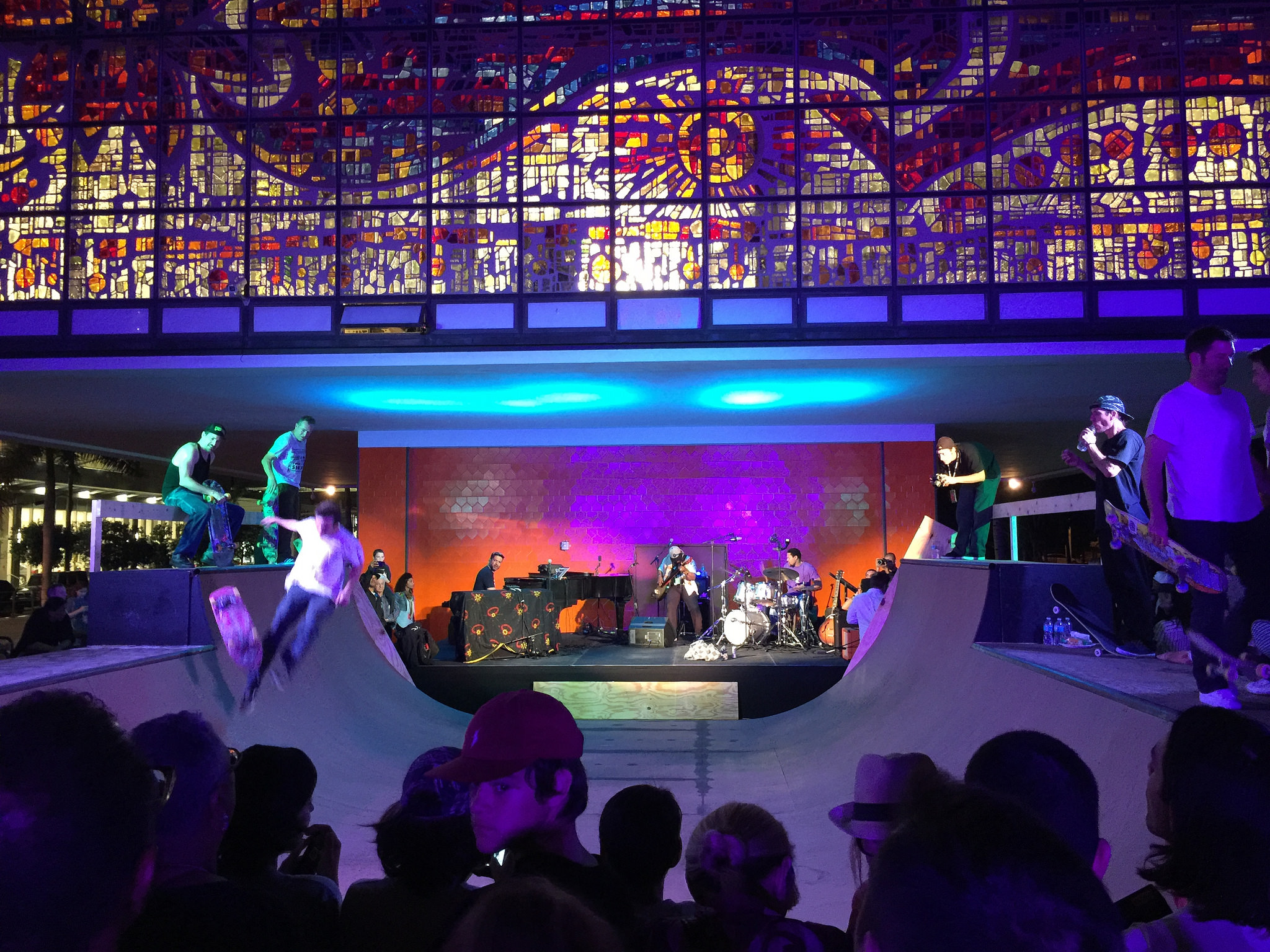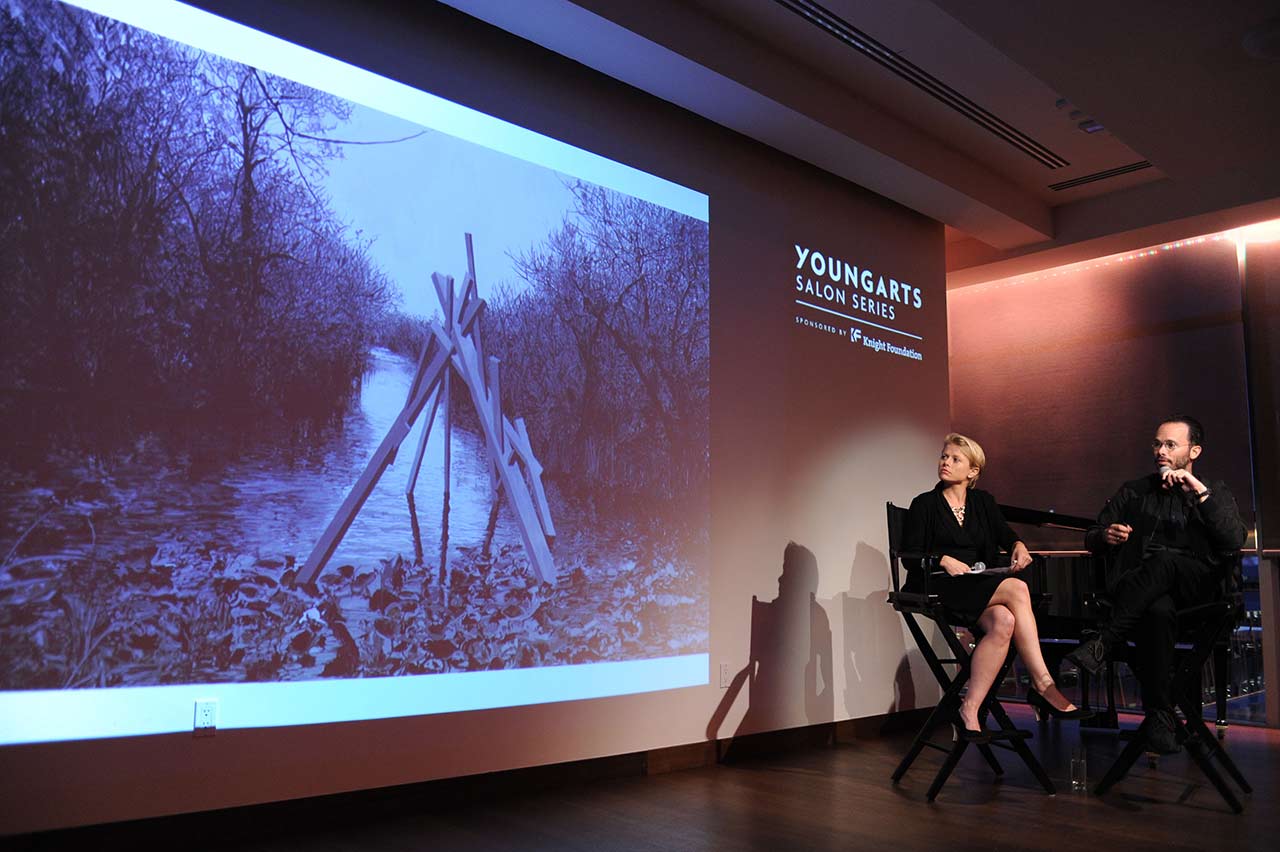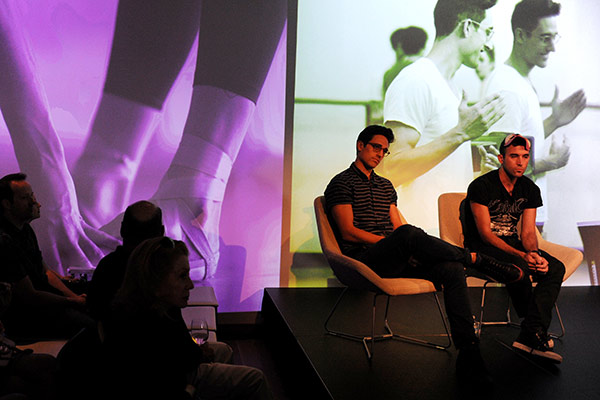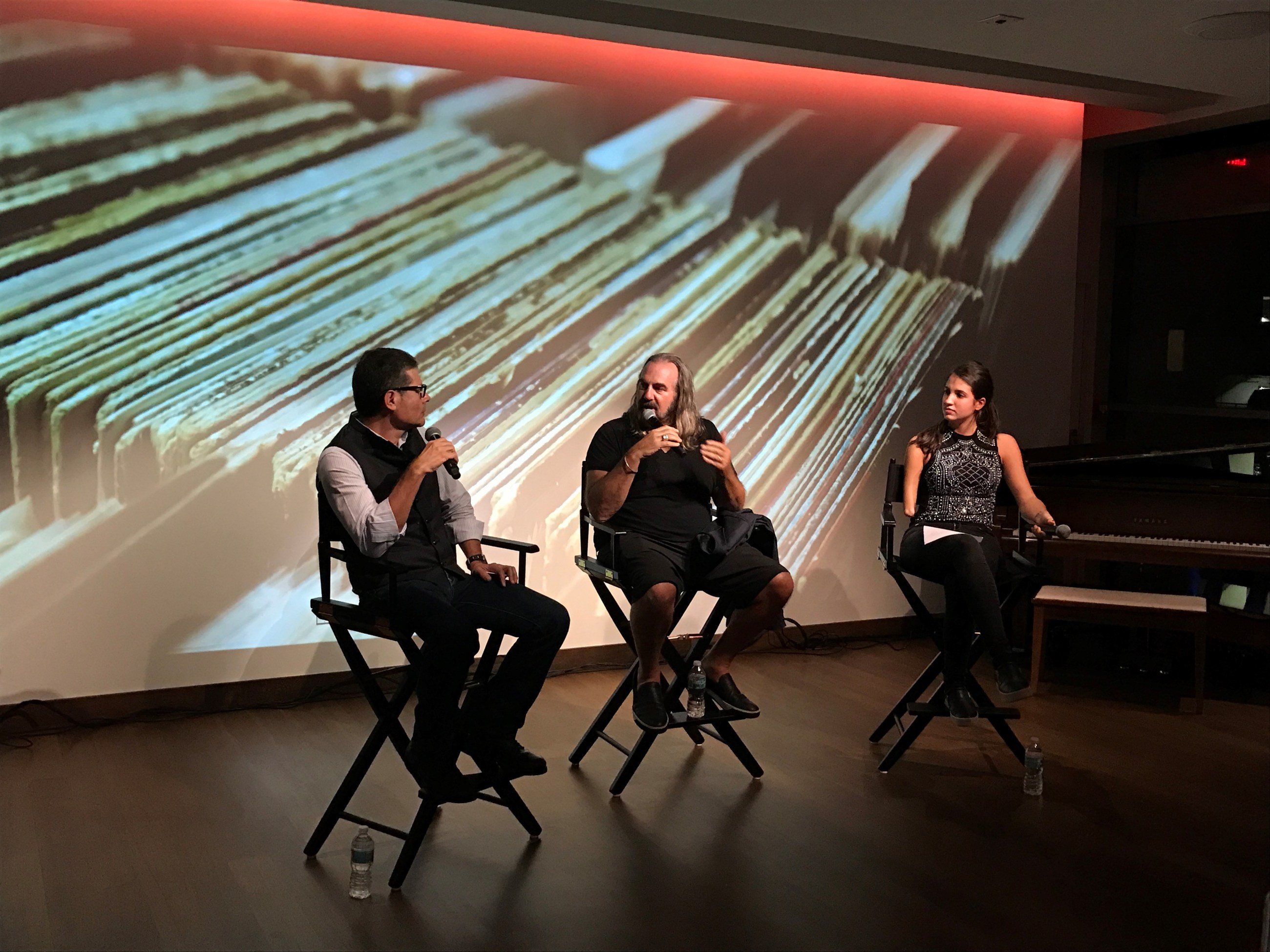
YoungArts salon explores the art—and business—of music
For the past 30 years, seemingly every aspect of the music industry—from creation and presentation to the ways the product may be distributed, acquired and consumed—has been disrupted by technological developments. But for every benefit of the democratization of the creative and dissemination process there’s a real and practical challenge for the artist to get paid for his labor and make a living of it.
Such was the backdrop of the “Discovery + Emerging Talent” conversation between producer, remixer and DJ Arthur Baker, agent Bruno Del Granado and moderator, singer and songwriter Victoria Canal, part of the YoungArts Salon Series, Wednesday. The talk was held at Ted’s, a performance lounge on the seventh floor of the National YoungArts Foundation headquarters in Miami, in front of a full house.
The discussion covered the arc from discovery to, well, making a living and while there were not cure-all recommendations for the young artists in the audience, all three, each at a different stage in their careers, offered substantive insights.
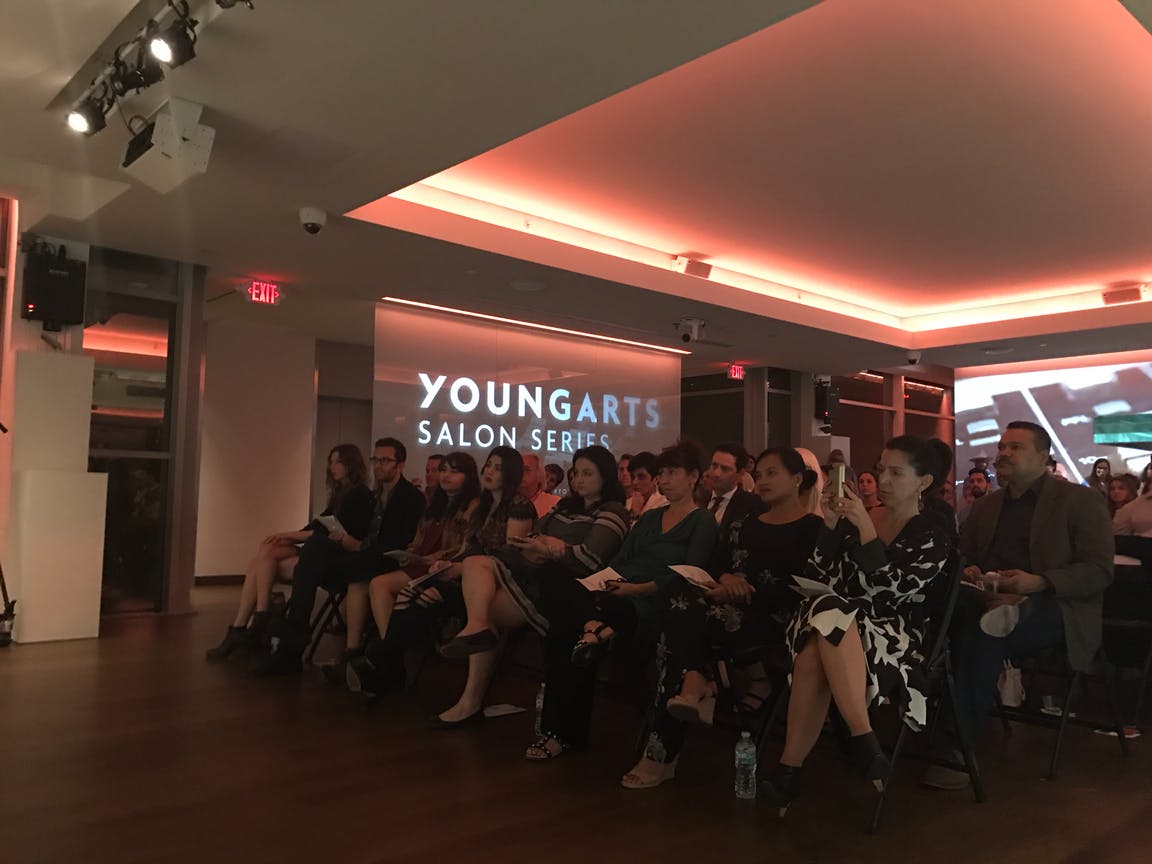
Asked about what an agent or producer may look for in an aspiring artist, Del Granado, an agent at Creative Artists Agency and a young veteran of the industry whose resume includes working with Latin superstar Ricky Martin for 10 years, said “first and foremost, talent. I’d say talent and the drive and determination to do it. [Knowing] that’s all they want to do in life, that they breathe, sleep and think about music. That’s a huge part of success—and of course, you need luck and have the right team with you.”
Baker, an influential producer whose career tracks the evolution from the disco era to hip-hop, working with artists such as Afrika Bambaataa, Bob Dylan, Al Green and Bruce Springsteen, put his own spin on similar traits.
“Confidence, talent, persistence, a little bit of luck and doing your homework, which I think is really important,” he said. “If you want to become a musician, you should know who’s come before you and relate it to what you are doing. Have a sense of history.”
“And you have to get yourself out there,” underscored Baker. “It’s so different from when I started in the ’70s, because now you have so much more control of your destiny. With internet you put out your song and 3 million people see it. Compared to when I started [in the 1970s] that’s ridiculous.”
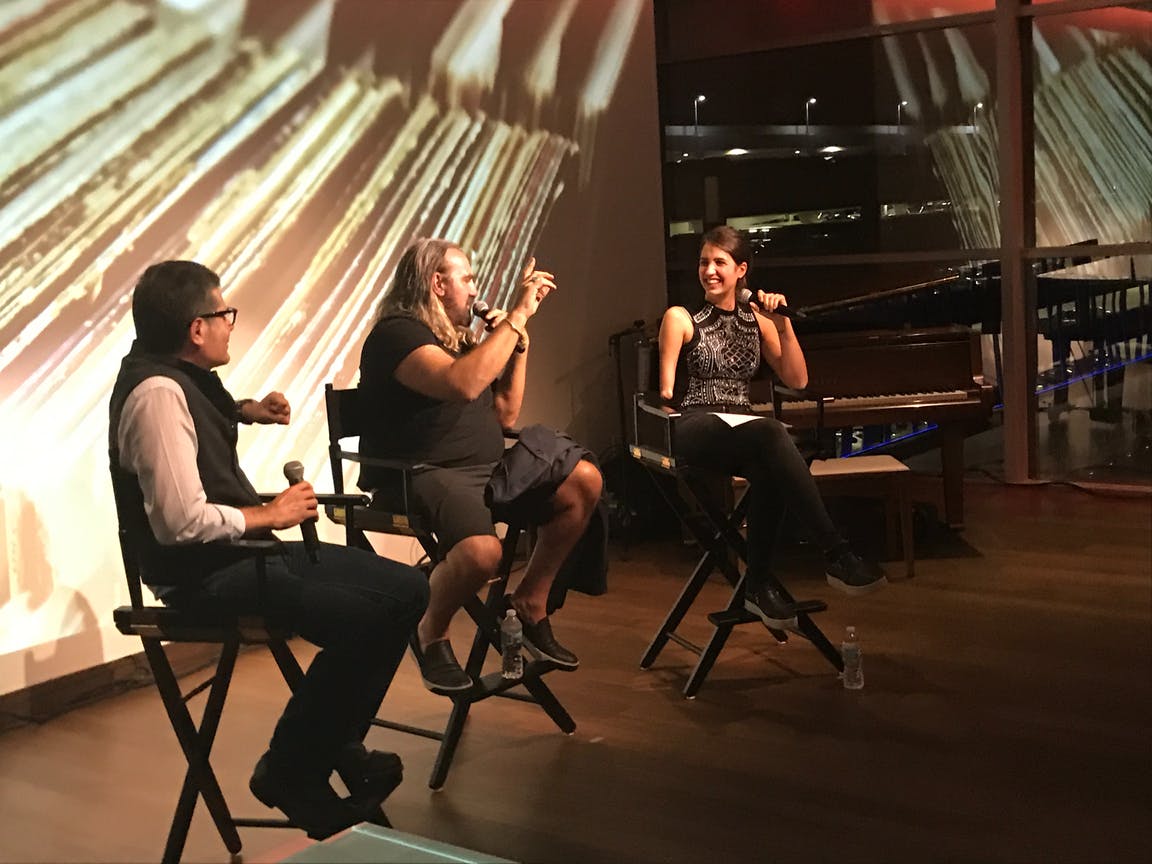
As with much of what has happened in the music industry in the past 30 years, even beneficial changes have come with a cost. Few would lament the passing of gatekeepers such as radio stations, music retailers, certain publications or even MTV, once must-haves to reach an audience. “You can go directly to your fans now and have 3 million views in a space of days. There’s a huge spectrum of possibilities to get your music out there,” said Del Granado. “The downside of it is that there are another 100,000 artists trying to do the same thing.”
And then, even with what can only be considered success, there are caveats.
Canal, a 2016 U.S. Presidential Scholar of the Arts, a national program created to “recognize and honor some of our nation’s most distinguished graduating high school seniors,” talked about her own experiences trying to be heard by influential people in the industry. (Young Arts is a nominating agency for the program.) Canal independently produced and released her debut EP, and at one point, she shared her experience with the bottom-line realities of the new music industry.
“It’s kind of crazy. I have a song of mine [by which] I earn 100 percent royalty, it has 2.8 million listens on Spotify—and I made all of 800 bucks. That’s scary to me. It took me a long time to get to the point of getting people interested in listening to my song.”
The free-flowing discussion included insights about a formal music education, the ways the business has changed and the alternatives to the old ways.
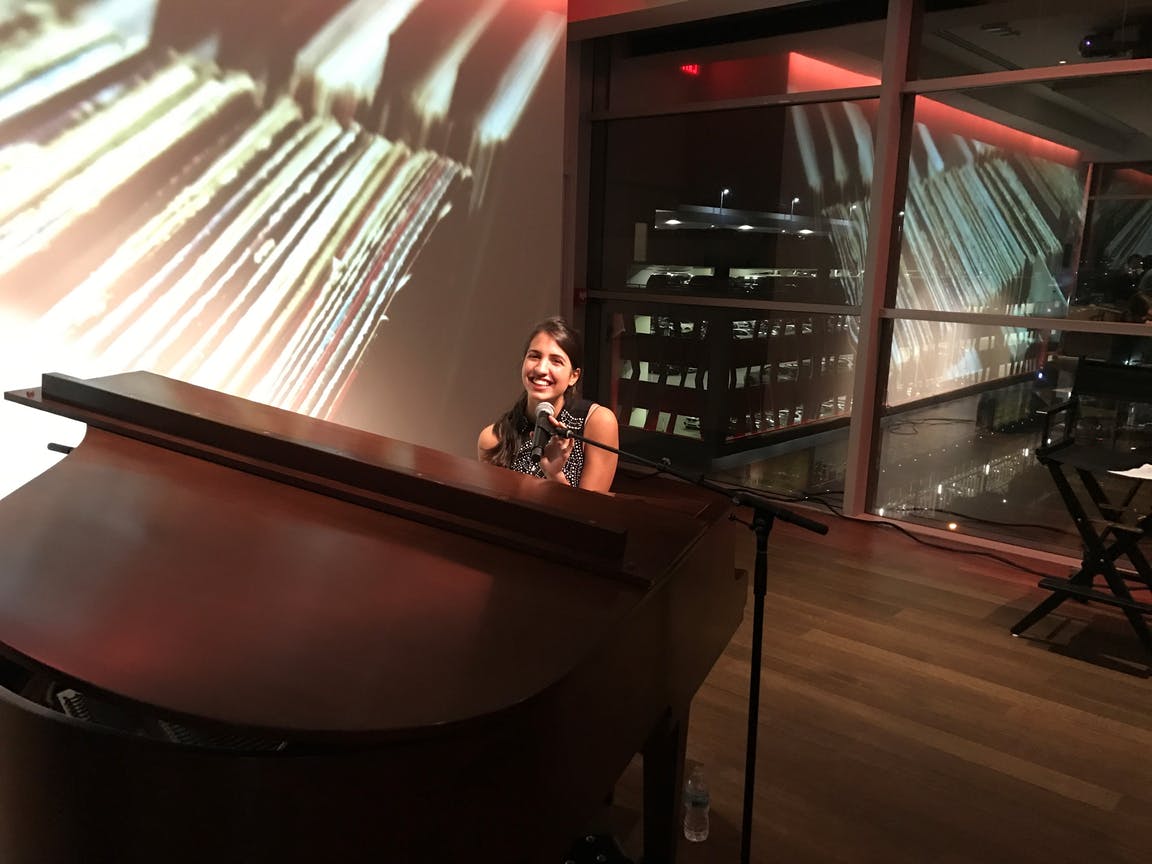
Music education “works for some people and not for others,” said Baker, who noted he is not a trained musician. “It depends who you are and what you want to do.” As for the new business models, Del Granado noted that “in the 1980s you would release a record and then build a tour around it to sell some record. Now it’s the other way around. Now it’s all about your tours, so I record as a marketing tool for you to sell concert tickets.” As for alternatives to depending on selling records for a musician’s income, both Baker and Del Granado spoke of licensing, sponsorships and other marketing approaches. “The reality is that you have to make it up in other ways,” Baker said.
And considering the long odds, Canal brought up the notion of quitting. Had they ever thought about it? “Never. That’s all I ever wanted to do,” say Del Granado.
Canal conceded she had—for a moment. “Yes, I had doubts. I spent all my savings on my EP. I thought, ‘Maybe this is not for me.’” Then on a trip in Australia she found out that every time something important happened to her, she wrote a song. “That was a sign for me. This is what I have to do.”
In fact, for all the challenges creative musicians face, the ultimate goal cannot be fame or fortune, said Baker.
“When I started, people didn’t think of being famous,” he said. “New Edition wasn’t thinking about being famous. The Beastie Boys were not thinking of being famous, they wanted to get records out, they wanted to play music. Yeah, they wanted to make a living, but the main thing was not about being famous. I see too many kids today thinking ‘I want to be famous’ instead of ‘I want to be great.’ If you’re doing this because you want to be famous, you’re doing it for the wrong reasons.”
The evening closed with Canal sitting at the piano and singing two of her original songs.
Business is business, but first, and last, is the music.
Fernando González is a Miami-based arts and culture writer. He can be reached via email at [email protected].
-
Arts / Article
-
Arts / Article
-
Arts / Article
-
Arts / Article
-
Arts / Article
-
Arts / Article
Recent Content
-
Artsarticle ·
-
Artsarticle ·
-
Artsarticle ·
